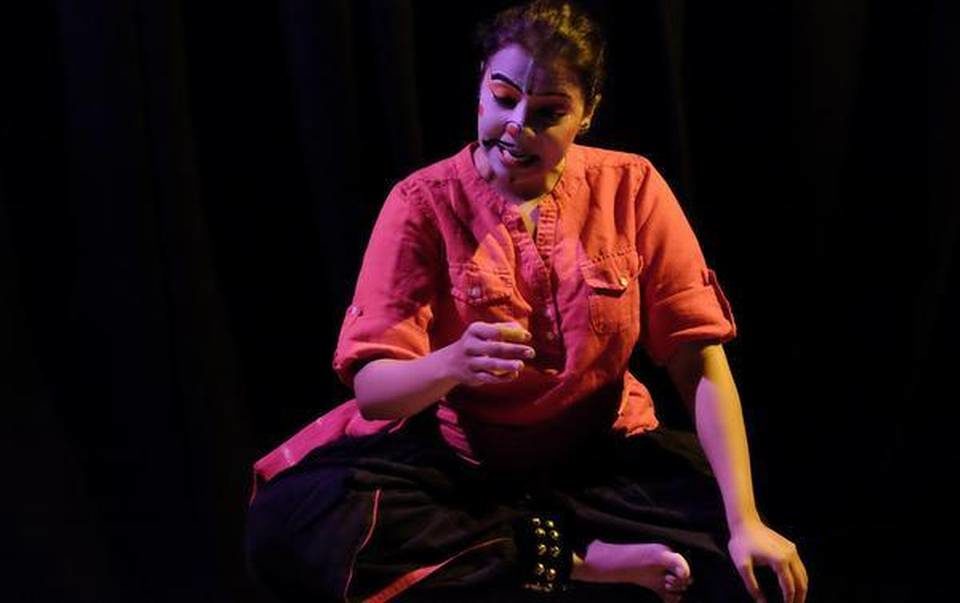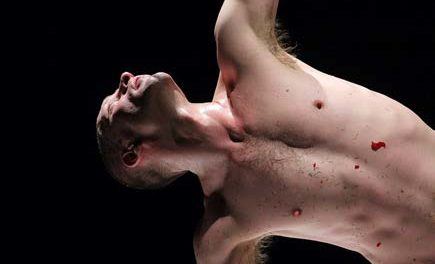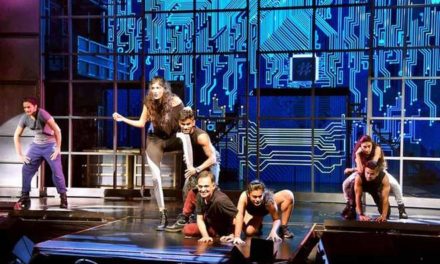“I still remember, I was down with chicken pox and my mom would tell me stories. But, The Ramayana was too goody-goody for me and I would want my mom to narrate only The Mahabharata,” — Sunandha Raghunathan was 11 when she was introduced to the epic.
Her new production that combines kattaikoothu and English theatre, titled Bad Hindu, speaks of Arjuna’s son, Aravan’s sacrifice.
“I am so fascinated by how relevant The Mahabharatha is today,” she says.
Bad Hindu. In these times of extreme intolerance, this particular title is enough to spark questions and controversies. At the same time, it doesn’t fail to intrigue. Sunandha, however, arrived at this title by solely following the narrative. The writer-director and performer of this kattaikoothu inspired one-act play, believes that the spiritual goal of every Hindu is to merge the individual consciousness with the universal consciousness — to attain salvation.
“Since the form of this show is in such a way that at the end of every section, there’s a reset, my goal mimics a Hindu’s goal. And it ends up with me having to be reborn over and over. Hence, the character is sinning, and is a Bad Hindu,” says Sunandha who worked on this piece while pursuing a Master’s degree in Theatre in London.
The layered play has Sunandha in the role of a kattaikoothu storyteller who welcomes the audience to a performance centered around the story of Aravan’s sacrifice from The Mahabharata. But someone unexpected interrupts the storyteller’s narration. What ensues after, raises questions on the nature of identity and its construction.
“I chose the kattaikoothu performance of Aravan Kalabali and I used the story that features in the performance as the narrative,” explains Sunandha adding, “Since my play is about identity and how it is a constructed idea that is also performative — meaning, you perform your identity for others — the need was to juxtapose it with something timeless.”
The content, which is largely autobiographical and thereby contemporary, thus gains a mythological twist. The character of Aravan is the perfect vehicle to carry this ambiguous concept of identity, says the director.
“Aravan was not a transgender character. He is a male character but somehow he is assimilated into the transgender community and later becomes their god,” she observes.
Sunandha, during the inception of the play, wanted to experiment with form and kattaikoothu seemed a perfect fit.
“I met Thilagavathi Palani, the kattaikoothu exponent and watched her night-long performance. Then I trained with her, sort of picked elements needed for the show,” says Sunandha who is fascinated by the extraordinary dramaturgy present in the art form even though, singing and dancing form an integral part.
Bad Hindu also has elements of music and choreography woven into the story.
“Since the speaking portions are in English, all the songs are in Tamil and they are lifted from the Aravan Kalabali,” explains the director.
This article originally appeared in The Hindu on November 22, 2018, and has been reposted with permission.
This post was written by the author in their personal capacity.The opinions expressed in this article are the author’s own and do not reflect the view of The Theatre Times, their staff or collaborators.
This post was written by Gowri S.
The views expressed here belong to the author and do not necessarily reflect our views and opinions.


















